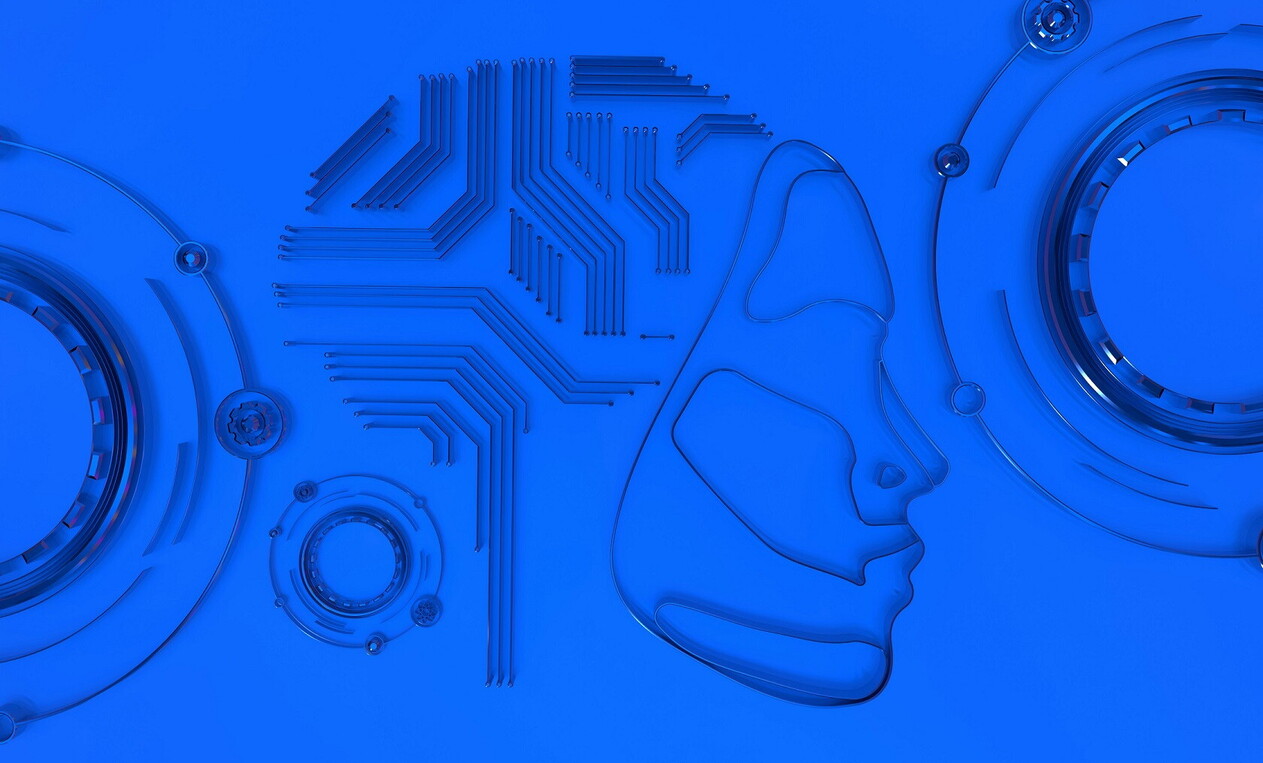
The Nature of Human-Machine Interaction
Ethics A guide, not a hurdle
The challenge is to develop AI that is not only powerful and efficient, but also fair, transparent and aligned with our values
11 minIn the fast-changing technological landscape of the 21st century, digital ethics and artificial intelligence (AI) have emerged as pivotal issues shaping our collective future. These interconnected fields raise fundamental questions about human-machine interaction, the boundaries of automation, and the ethical responsibilities tied to technological advancement. In this article, we will explore the key challenges and opportunities that arise at the intersection of digital ethics and AI.
The importance of moral principles in the digital world
Digital ethics focuses on the moral principles and norms that guide behavior in the digital world. With the rise of AI, digital ethics has taken on even greater significance. AI’s ability to process vast amounts of data and make autonomous decisions raises complex ethical questions that demand careful consideration. Several issues, in particular, have emerged as enduring ethical challenges, including:
• Privacy and data protection: AI requires large amounts of data to be effective. This raises concerns about the collection, storage and use of personal data.
• Bias and discrimination: if not carefully designed and trained, AI algorithms can perpetuate or even amplify existing biases.
• Transparency and ‘explainability’: many AI systems still operate as ‘black boxes’, making it difficult to understand how their decision-taking process actually develops and how they reach a final decision.
• Responsibility and accountability: when an AI system makes a mistake, who is responsible? Such questions become particularly critical in sectors such as healthcare and the justice system.
• Impact on the world of work: AI-driven automation is transforming the job market, often giving rise to talk of ‘technological unemployment,’ even if the public discourse should focus on the need for reskilling and rapid retraining.

Opportunities in ethics integration
Integrating ethics into artificial intelligence is both one of the greatest challenges and most promising opportunities of our time. As AI continues to evolve and permeate more areas of daily life, it is crucial to consider not only its technical capabilities but also the ethical implications of its use. This integration offers the chance to create AI systems that are not only efficient and powerful but also responsible and fair. The real opportunity lies in shaping a future where technology enhances human capabilities without compromising fundamental ethical principles, ensuring that AI becomes a tool for social progress and collective well-being, primarily by:
• Improving the quality of life: ethically designed and guided AI can significantly improve quality of life, from personalized healthcare to optimized urban transport. In the environmental field in particular, AI technologies can help monitor and manage natural resources, but their development and use require very careful consideration. For example, mining the materials to power AI can damage fragile ecosystems, while energy-intensive data centers generate high carbon emissions.
• promoting equity: through AI systems designed, for example, to help identify and mitigate social inequalities. It is essential, in this sense, that AI development policies incorporate principles of equity and sustainability. Only in this way can we ensure that these innovations foster technological progress, while also contributing to a more just society and a healthier environment.
• strengthening scientific research: AI has the potential to accelerate research in critical fields such as medicine and climate science, leading to discoveries that can benefit society as a whole.
• improving safety: ‘ethical’ AI systems can improve safety in various sectors, from cybersecurity to road safety.
• facilitating accessibility: AI can make technology more accessible to people with disabilities, promoting digital inclusion.
Towards ethical guidelines
To address the challenges and seize the opportunities of AI ethically, a multifaceted approach is essential. As a society, we must acknowledge that AI is rapidly becoming an integral part of our daily lives, influencing sectors from healthcare and education to commerce and security. This rapid technological progress brings significant ethical responsibilities. It is crucial that AI development and implementation respect human rights, promote fairness, and protect privacy. Achieving this requires collaboration between governments, tech companies, academics, and civil society to create robust ethical guidelines and effective oversight mechanisms.
Additionally, we must develop comprehensive public education initiatives on AI—supported by dedicated financial resources—so that people can understand both the benefits and potential risks of this technology. It is equally important to promote diversity and inclusion within the AI field, ensuring that systems are designed to serve all communities equitably. As AI continues to evolve, we must remain vigilant and adaptable, constantly reassessing and refining our ethical frameworks. Only through these collective efforts can we create a future where AI is a tool for human progress, guided by sound ethical principles and core human values. Certain aspects, in particular, merit special attention, such as:
• Education and awareness
It is crucial to educate not only AI developers but also the public at large about the ethical implications of AI. This includes promoting digital literacy and fostering an understanding of the basic principles of AI.
• Regulation and governance
We need to develop regulatory frameworks that strike a balance between fostering innovation and protecting individual rights and the social good. These frameworks must be flexible enough to adapt to rapid technological advancements, avoiding excessive particularisms that could quickly render them obsolete.
• Ethical design
Ethics must be integrated into the AI design process from the start—not as an afterthought or, worse, a later imposition. This includes adopting principles such as privacy by design and algorithmic fairness.
Privacy by design means that personal data protection is embedded in the development process of a system or application from the outset. This approach ensures that privacy is a fundamental element, not an afterthought. It involves designing systems that minimize data collection, securely manage information, and respect user privacy.
Algorithmic fairness refers to the need to ensure that AI algorithms do not perpetuate or amplify existing inequalities or biases. It requires critically analyzing the data used to ensure that the algorithms are representative and non-discriminatory. The goal of algorithmic fairness is to promote impartial outcomes, ensuring that AI-based decisions do not disadvantage vulnerable or marginalized groups, thus contributing to the ethical and responsible use of technology.
• Interdisciplinary collaboration
The complexity of the ethical questions raised by AI requires collaboration across disciplines, including computer science, philosophy, law, sociology and psychology.
• Transparency and accountability
Companies and organizations developing and implementing AI systems must be transparent about their processes and take responsibility for the consequences of their technologies. At the Yale University Digital Ethics Center, our mission is to address these challenges and opportunities through continuous interdisciplinary research on digital ethics, with a particular focus on artificial intelligence. Our research primarily centers on key areas such as:
• AI ethics: understood as the ethical implications of the development and implementation of AI.
• Data governance: through the exploration of ethical models for the management and use of data.
• Social impact of technology: by analyzing how digital technologies can influence society as a whole and how they can be designed to promote the common good.
• Ethics of innovation: through the study of ethical approaches to technological innovation, balancing progress and social responsibility.
Digital ethics and artificial intelligence are rapidly evolving fields of study and practice, presenting both significant challenges and extraordinary opportunities. The work of the Yale Digital Ethics Center aims to serve as a vital tool for navigating this complex landscape. As we move toward an increasingly digital and automated future, it is crucial to maintain a balance between technological progress and fundamental human values. Ethics should not be seen as a barrier to innovation, but as a guide to creating technologies that truly enhance the human condition. The challenge ahead is to develop AI that is not only powerful and efficient, but also fair, transparent, and aligned with our ethical values. Achieving this will require a continuous, collaborative effort from researchers, developers, policymakers, and civil society.
Digital ethics throughout the 21st century will be shaped by the choices we make today. We have both the opportunity and responsibility to guide technological development in a way that promotes the common good, respects human dignity, and contributes to a more equitable and sustainable world.
The Yale Digital Ethics Center, with its interdisciplinary approach and commitment to cutting-edge research, plays a crucial role in this mission. By exploring the complex intersections of technology and ethics, the center helps train a new generation of leaders and citizens who are empowered to address the ethical challenges of our digital age.
Looking ahead, it is clear that digital ethics and AI will remain central topics in public and academic discourse. Our ability to navigate these complexities will not only determine the success of technological innovation but also the quality of the society we build for future generations.

